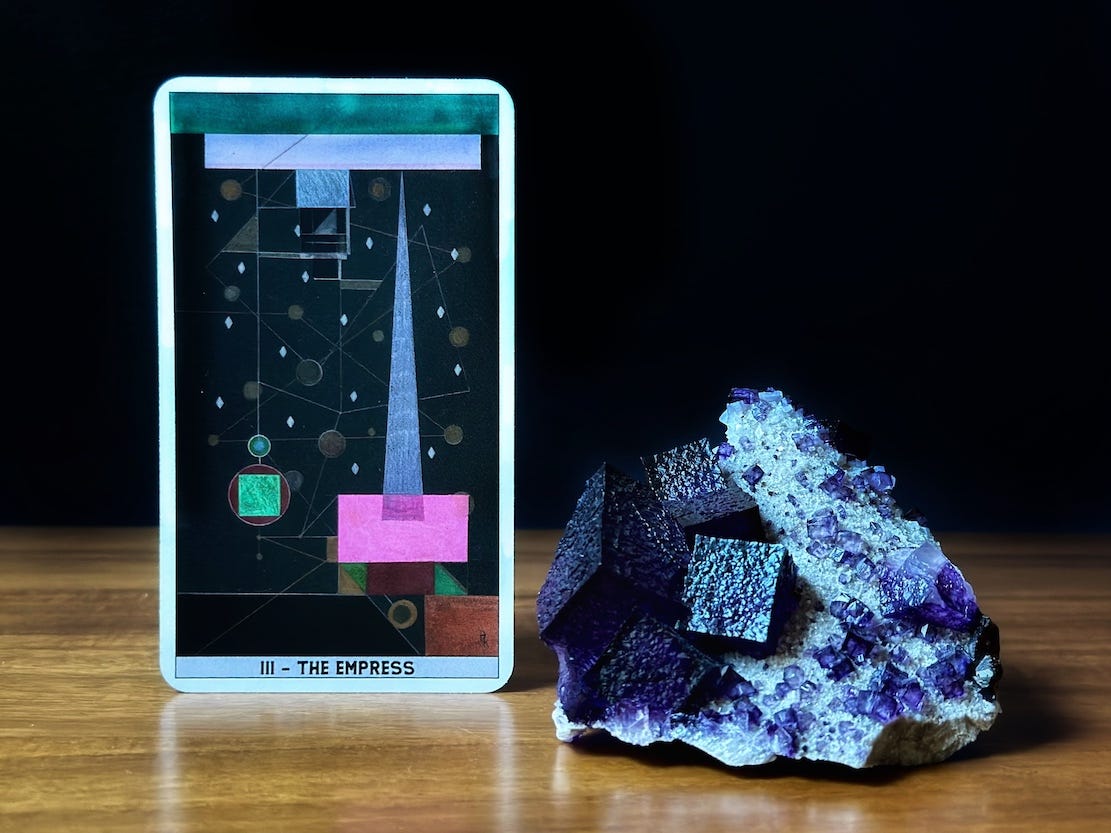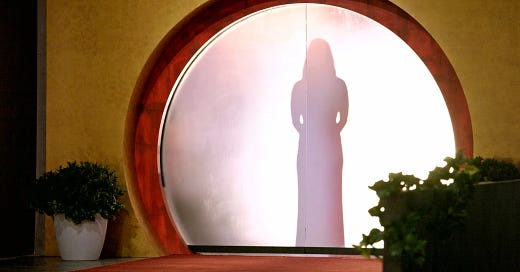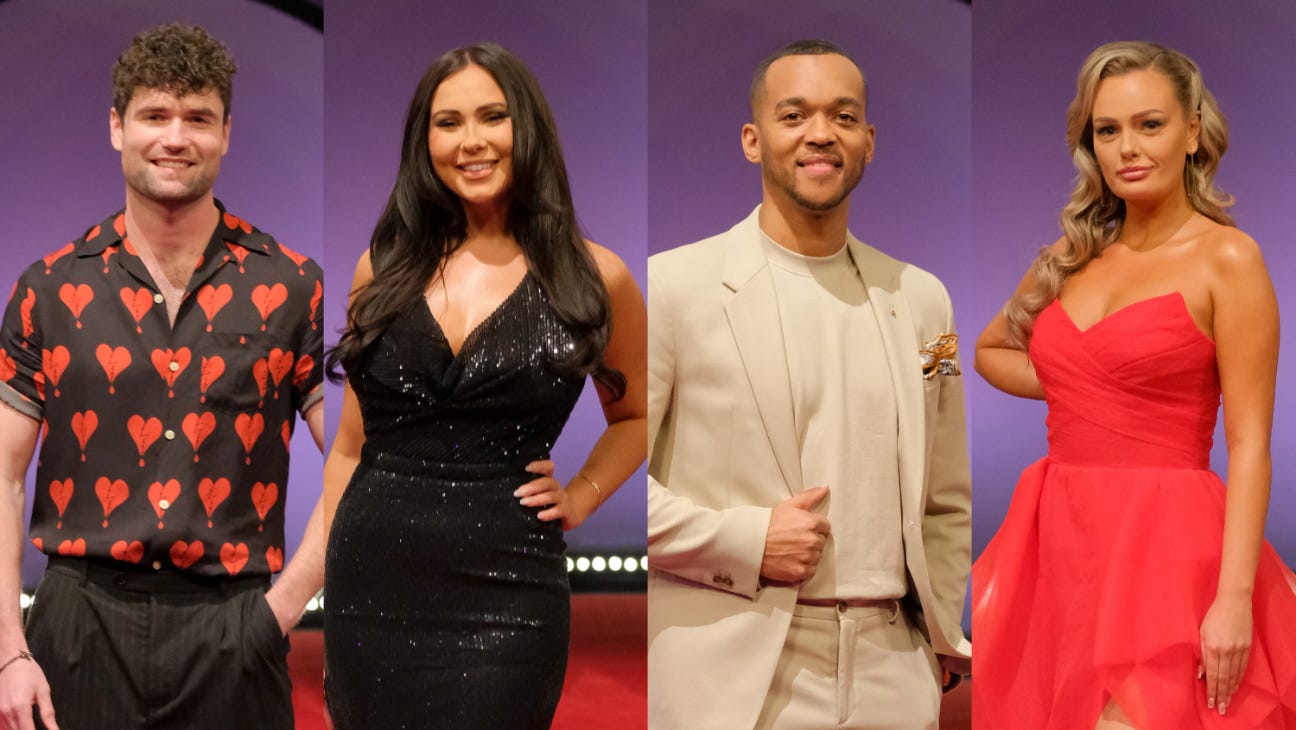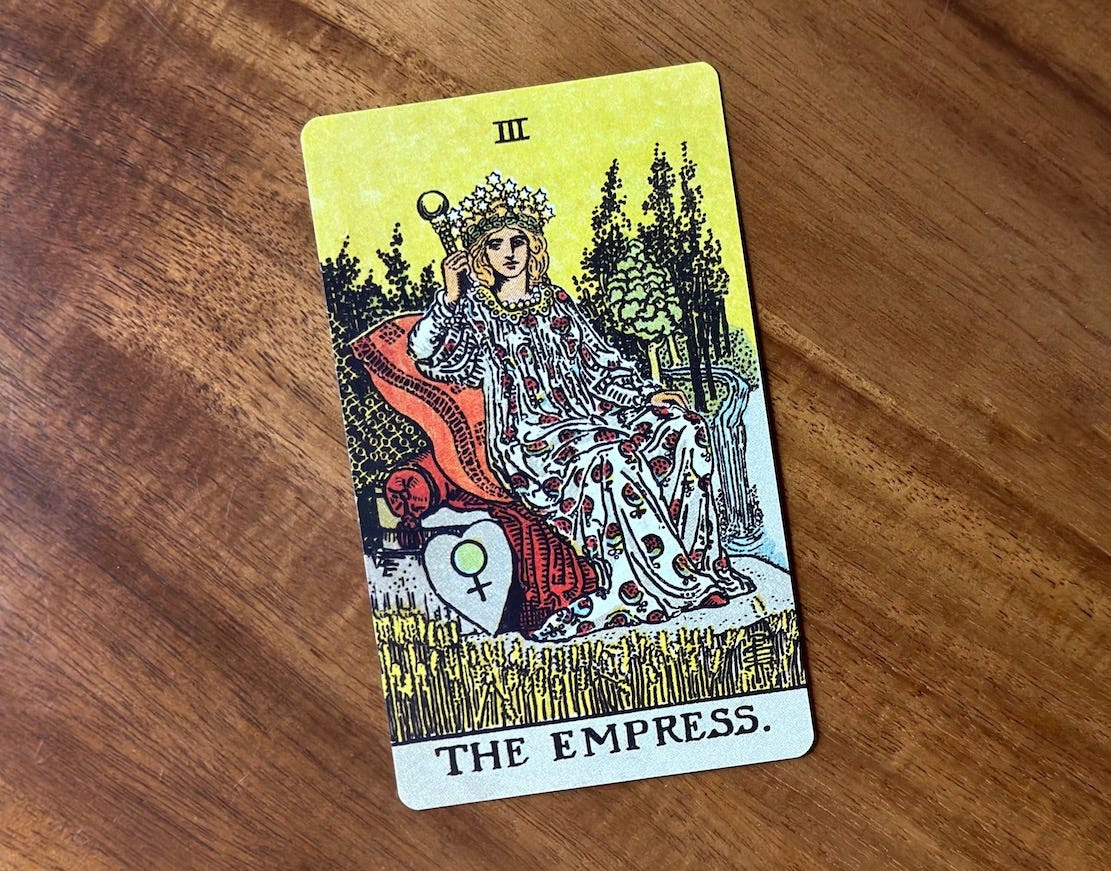“Those who tell the stories rule society.” — Plato
Once upon a time, I had a short-lived run on a reality show.
It’s a long story I’ll make very short: I auditioned; I got cast; I freaked out; I went home. You probably didn’t watch it, and if you did, you likely don’t remember. (And you certainly don’t remember me, as my face graced your screen for a number of minutes I can count on one hand.)
The ordeal left me with a distaste for the process — wearing a mic 24/7, the “suggestions” from producers I felt powerless to refuse, the leading questions we were expected to incorporate into our answers, even when there was no good way to phrase them. (“The reason I hate so-and-so is…”) For years after, I was content to ignore unscripted TV, save for the occasional cooking show or a much-hyped Bachelor finale (and even then, only with friends).
When Love is Blind first premiered in February 2020 to unavoidable fanfare, I couldn’t get into it. It felt forced. Exploitative. Dare I say, a bit boring. But eventually — somewhere circa season two of both the show and the pandemic — it got to me.
Perhaps it felt commiserative to watch other people who were hungry for connection. Maybe enough time had passed since my own weird experience. Maybe I’d become softer, stupider, less judgmental. Whatever the reason, I’ve now watched every available episode and will discuss with anyone who is willing.
My partner, who resisted at first but now watches every minute alongside me, calls it “the McDonald’s of television,” an easy to watch, mindless pleasure. I disagree.
Where I once saw reality shows as nothing more than silly, manufactured performances, I now see anthropology in action. I see meditations on power that would delight the likes of Machiavelli and Plato (the latter of whom is quoted throughout this piece). I see enough psychology, philosophy, and sociology to spawn a thesis or seven.
It’s as much about what I don’t see as what I do. I imagine the thoughts of the guy holding the boom mic just outside the frame. I feel compassion for the person crying in the bathroom. I wonder after the cast members we never glimpse outside of intros or reunion parties. I think about the people who take hours and hours of footage and edit it into cohesive storylines, leaving so much humanity on the cutting room floor.
And I think about what brings us to watch in the first place — what all of it says about me.
*Rest assured this newsletter does not contain spoilers.
“There is truth in wine and children.” — Plato
For the uninitiated, Love is Blind is a Netflix show where “singles” (their word; I maintain this term should be reserved for processed cheese slices) go on a series of dates from adjoined rooms (“the pods”). They have long, soul-baring discussions from opposite sides of a wall, while drinking heavily and occasionally dozing off on one another. After a week of this, they propose marriage, “sight unseen,” a phrase that is repeated ad nauseum.
Once engaged, couples get to see each other for the first time, emerging from automated sliding doors that look like if The Bachelor visited the set of Star Trek: Enterprise. After a month of filmed cohabitation, they join their friends and family in a dolled-up conference room, or near a misty mountainside, where they say, “I do” or “I don’t.” Emotions ensue.
Season after season, “the experiment” (as they all refer to it, despite its dominance as a bona fide franchise) proves that emotional connections can be forged through a wall. But in the real world, the couples that last are the ones where the human attraction holds up. “Love is Blind!” they croon at the reunion, despite having proved the opposite. This will not stop me from tuning in.
I’ve dabbled here and there in reality world — Real Housewives of New York, anyone? — but Love Is Blind may be the only show where I’ve anxiously waited to see what happens next. The connection feels deep and personal, despite the part where the cast members and I share little in common on paper. Then it hit me. Writing on the internet is kind of like being a contestant on Love is Blind — just replace the wall with a screen. And the “singles” with, well, you.
We’re all out here trying to make a connection — on dating apps, in the wild, in this newsletter. Love connections and friend connections and like-minded people connections. We may feel superior watching the pods from the comfort of our homes — or opting not to watch at all. But it’s a feeling we all understand, an outcome we are all after. To be seen. To find “our people.”
Every time we go out into the world, every time we press send, it’s like emerging from those sliding doors — stepping into the light, saying “Hello, this is me.” Eager to greet the person on the other side. Hoping against hope for acceptance.
“Human behavior flows from three main sources: desire, emotion, and knowledge.” — Plato
I am sitting on the sidelines of a wedding reception, watching the action unfold. I’ve never met the couple of honor, I know all of three other guests, and the music is too loud to have a conversation without a bullhorn. So, my night becomes an exercise in cake and observation. On the dance floor, a relative does a move reminiscent of a teapot. A cousin’s date searches for the exit. The person working the coat check appears to be asleep.
Life is its own reality show, unfolding on elevators and grocery stores and public transit. Everywhere you look, our quirks are on display, a live-action diorama of Homo sapiens from a future natural history museum.
Reality TV takes it a step further, letting us eavesdrop on humans in captivity, every intimate moment on display. We accept that everything is heightened, much is performative, plot points are hatched and manipulated by parties off-screen. Still, it grants us permission, to engage with the subjects — and ourselves — from a safe distance. Watch as humans meet, how they court one another, how trust is established. Now observe how it all breaks down with cameras and copious amounts of alcohol.
“The experiment” isn’t out to prove a hypothesis as much as to entertain. It is big business, and for some, a path to fame.
But watching it sheds a light on my own interactions. In a strange twist, life is the true experiment.
“The measure of a man is what he does with power.” — Plato
The “reunion” is a cornerstone of any reality franchise. The cast gathers some weeks, months, or even years after the show, often inexplicably dressed in formalwear, to offer an update on where they are now. This is anthropology at its finest. I wait for this episode to behold the glow-up — drastically changed appearances to accompany their newly outsized budgets. There are eyelashes like a vintage baby doll, blindingly white teeth, prominent cheekbones, jawlines more angular than a cubist painting.
All of it is soon overshadowed by the drama.
What happens when a mortal wins a branch of the life lottery? Do they thrive, or crumble under the pressure? Will the cast members find happiness, drinking heartily from the cup of life?
…Will I?
“Love is a serious mental disease.” — Plato
There are so many questions that can never be answered.
Am I “normal”?
Does anyone else ever feel this way?
Do other people argue more or less?
What would it be like if x, y, or z?
While we can’t know for sure, we have Couples Therapy to give us a window into someone else’s life. We also have 90-Day Fiancé, Love Island (the UK version, of course), MILF Manner, Marrying Millions, The Real Housewives, Below Deck, Vanderpump Rules… or the nostalgia from the likes of Real World, Survivor, Flavor of Love, and Jersey Shore. There is Queer Eye to reinforce our belief in humanity and bring a tear to the eye. There are real estate shows and baking shows and talent competitions and shows with so many concepts rolled in it’s impossible to keep track.
At its best, Love Is Blind is about witnessing someone bear their soul to an audience they cannot see — both the person on the other side of the wall and the tens of millions of eventual viewers. Sure, they may have been lured there for reasons other than love. But it’s still an act of courage to submit to the possibility of heartbreak, humiliation, and criticism, on camera or otherwise.
Sure, it isn’t Chekhov. But the tears and insecurity and triumph and rejection and connection and uncertainty and honesty and raw emotion…. THAT is being a person. And that is why we watch.
Am I okay? Will things work out? Does anyone understand?
Yes, comes the answer, in as many forms. Me too, me too, me too.
In the end, I must concede that maybe love isn’t blind. But it’s pretty effing courageous. And that is plenty.
Card of the Week
Here is this week’s card for the collective, as well as some thoughts to carry into the days ahead. As most modern readers will tell you, the tarot is not about fortunetelling, nor is it about neat, definitive answers. The cards are simply one path to reflection, a way of better knowing ourselves and others through universal themes. If this reading resonates with you, great! And if not, no worries. Take whatever may be helpful and leave the rest.

Images of The Empress are often overtly feminine — flowers and branches and hearts, oh my — the character a glamorous presence. She’s a maternal figure with the proprioception of a seasoned yoga teacher and the stage presence of Beyoncé. For a very long time, I didn’t connect to this card. I don’t take issue with any of these things, I just had a hard time envisioning how its message related to my decidedly un-Bey-like life. Eventually, it won me over.
A perennial crowd pleaser, The Empress speaks to new beginnings, growth, and creativity of all kinds. She knows that beautiful things live inside all of us, that the world will be all the better for them. And she wants us to bring them to life.
Traditionally, The Empress is about birthing things — ideas, projects, philosophies, art — tangible and otherwise. As I spent time with the card this week, the message I heard was that the most important part of this process is often letting go.
We can nurture things all we want. And sometimes, that is what’s needed. But to give life to something, we must eventually step back and let it fly. The Empress encourages us to press print or press send, to loosen our grip on what we seek to control. This is true of both our work and of ourselves.
The Empress asks us to come home, to fully inhabit our experience of being a creature in a body. To turn our awareness to the sensations of being alive.
She encourages us to fill the well — with rest, play, art, movement, nutrition, literature… whatever it is we need.
Once a seed is planted, our role is done. It is up to that seed, and the earth and sky, to grow. Watching it won’t make it go faster. Yelling certainly won’t, either.
As they say, creation is one part inspiration, one part perspiration, but the final piece of the equation is trust. This can be hard to summon but is no less necessary. The Empress encourages us to trust in the goodness of what we know, what we make, what we believe. Trust in the worthiness of what you have to share.
There are many lessons to be found in nature, about process and cycles and seasons. Our creativity follows the same paths, the same ups and downs and dry spells. Wherever you are at this moment, this card wishes to remind you that you can always take a step back and a deep breath and a moment to regroup.
Letting go is a form of nurturing. Sometimes, the kindest one of all.










Your closing comment about letting go is spot on for me today. Without going into detail I experienced something short of traumatic but nonetheless upsetting from someone I thought was a friend. Letting go may not only apply to allowing what you write to fly but also to put the past behind you. I got this same message in three other posts today so I feel the universe is telling me not to dwell or obsess but to move on.
Thanks very much for that.
I struggle with connecting to The Empress. Sometimes getting her and The High Priestess mixed up as they’re both near the front of the Major Arcana. Appreciate your insights on her :)